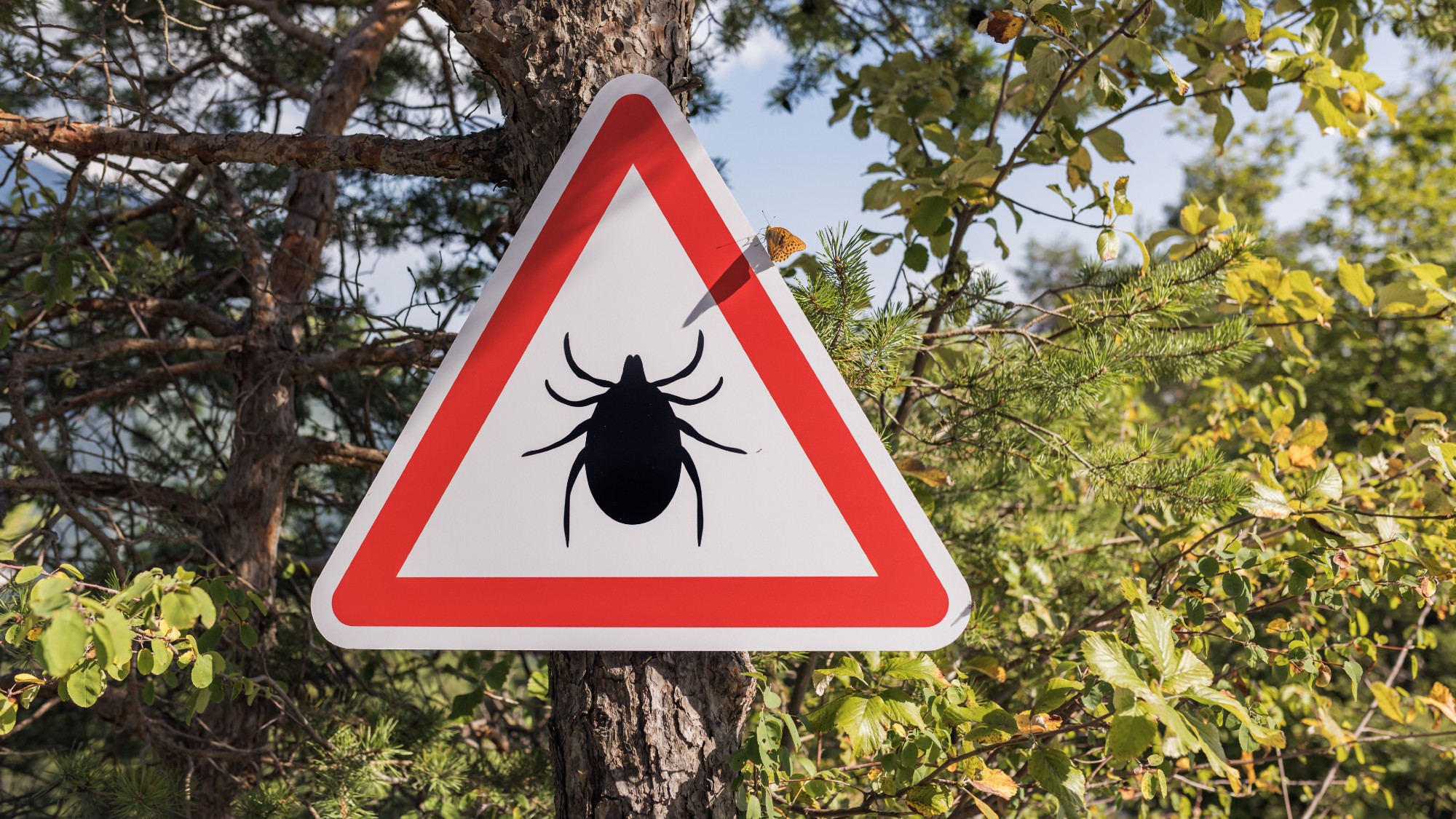A tick-borne illness is making its rounds in new parts of America
Babesiosis, spread through blacklegged or deer tick bites, is a growing risk


A free daily email with the biggest news stories of the day – and the best features from TheWeek.com
You are now subscribed
Your newsletter sign-up was successful
Babesiosis, a rare tick-borne illness, is spreading through parts of the U.S. The disease could be especially dangerous for those with weakened immune systems, and experts say it is only expected to spread more widely as climate change raises temperatures. Other insect-borne illnesses are also likely to increase as a result of warming temperatures.
An unprecedented up-tick
Babesiosis is a rare illness spread through blacklegged or deer tick bites. Now, the disease has expanded its range in the U.S., according to an article published in the Journal of Medical Entomology. The disease has been "historically concentrated in the Northeast and Upper Midwest" but "is now expanding in the mid-Atlantic region," said a press release about the journal article. This includes rising cases in Connecticut, Massachusetts, Minnesota, New Jersey, New York, Rhode Island and Wisconsin. The largest hotspot, though, was in Baltimore and the Delmarva Peninsula, an "180-mile-long coastal landmass comprising parts of Delaware, Maryland and Virginia," said Grist.
So far, "there are not many cases," Ellen Stromdahl, a retired tick researcher from the Defense Centers for Public Health and the lead author of the journal article, said to The Baltimore Banner. "We think it's the tip of the iceberg and we want to give an early warning." The number of cases is likely to be underrepresented as well because medical experts may not know to even test for it.
The Week
Escape your echo chamber. Get the facts behind the news, plus analysis from multiple perspectives.

Sign up for The Week's Free Newsletters
From our morning news briefing to a weekly Good News Newsletter, get the best of The Week delivered directly to your inbox.
From our morning news briefing to a weekly Good News Newsletter, get the best of The Week delivered directly to your inbox.
The good news is that approximately one quarter of babesiosis cases are asymptomatic. However, "people who do develop symptoms, especially older adults and immunocompromised people, can get quite sick with fever, chills, anemia, fatigue and jaundice," said Grist. "Untreated, the parasites, which infect and destroy red blood cells, can lead to organ failure and death." Many of the ticks spreading babesiosis also carry Lyme disease. "The Lyme-babesiosis connection is an active area of research," said Grist. "Experts suspect ticks infected with one of the diseases are more predisposed to be infected with the other, but they still don't know why exactly."
The tick of the iceberg
Climate change is to blame for the increases in the range of babesiosis. "Climatic conditions in the southern mid-Atlantic have always been welcoming for ticks," said Grist. "But warmer-than-average winters that have been occurring with grim regularity in recent years are turning some states in the region into year-round breeding sites for ticks." In addition, "reforestation efforts have supported an overpopulation of white-tailed deer," which are capable of carrying ticks over long distances," said Smithsonian Magazine. Suburban expansion has also put more humans in the habitats of ticks.
Ticks are not the only insects expanding their range and spreading disease. Mosquito-borne illnesses have also been rising rapidly and spreading to parts of the world in which they were not previously present. "Education about this emerging risk, including how to prevent infection in the first place, how to recognize infection and appropriate treatment, should be increased for medical providers, public health practitioners and the general population," said the press release.
A free daily email with the biggest news stories of the day – and the best features from TheWeek.com
Devika Rao has worked as a staff writer at The Week since 2022, covering science, the environment, climate and business. She previously worked as a policy associate for a nonprofit organization advocating for environmental action from a business perspective.
-
 How the FCC’s ‘equal time’ rule works
How the FCC’s ‘equal time’ rule worksIn the Spotlight The law is at the heart of the Colbert-CBS conflict
-
 What is the endgame in the DHS shutdown?
What is the endgame in the DHS shutdown?Today’s Big Question Democrats want to rein in ICE’s immigration crackdown
-
 ‘Poor time management isn’t just an inconvenience’
‘Poor time management isn’t just an inconvenience’Instant Opinion Opinion, comment and editorials of the day
-
 Scientists are worried about amoebas
Scientists are worried about amoebasUnder the radar Small and very mighty
-
 High Court action over Cape Verde tourist deaths
High Court action over Cape Verde tourist deathsThe Explainer Holidaymakers sue Tui after gastric illness outbreaks linked to six British deaths
-
 Metal-based compounds may be the future of antibiotics
Metal-based compounds may be the future of antibioticsUnder the radar Robots can help develop them
-
 A Nipah virus outbreak in India has brought back Covid-era surveillance
A Nipah virus outbreak in India has brought back Covid-era surveillanceUnder the radar The disease can spread through animals and humans
-
 Is the US about to lose its measles elimination status?
Is the US about to lose its measles elimination status?Today's Big Question Cases are skyrocketing
-
 A real head scratcher: how scabies returned to the UK
A real head scratcher: how scabies returned to the UKThe Explainer The ‘Victorian-era’ condition is on the rise in the UK, and experts aren’t sure why
-
 Trump HHS slashes advised child vaccinations
Trump HHS slashes advised child vaccinationsSpeed Read In a widely condemned move, the CDC will now recommend that children get vaccinated against 11 communicable diseases, not 17
-
 Deaths of children under 5 have gone up for the first time this century
Deaths of children under 5 have gone up for the first time this centuryUnder the radar Poor funding is the culprit
